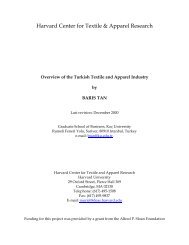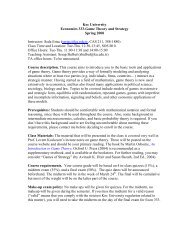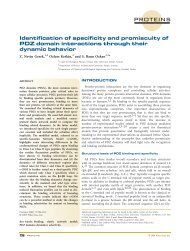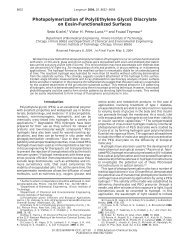Roman Landholding in Asia Minor Author(s): Thomas Robert ...
Roman Landholding in Asia Minor Author(s): Thomas Robert ...
Roman Landholding in Asia Minor Author(s): Thomas Robert ...
You also want an ePaper? Increase the reach of your titles
YUMPU automatically turns print PDFs into web optimized ePapers that Google loves.
Vol. lxv]<br />
<strong>Roman</strong> <strong>Landhold<strong>in</strong>g</strong> <strong>in</strong> <strong>Asia</strong> M<strong>in</strong>or<br />
213<br />
taken up some public or confiscated lands.26 In <strong>Asia</strong> M<strong>in</strong>or,<br />
however, there was no such disturbance as was caused <strong>in</strong><br />
Italy by the settlement of Caesar's soldiers there. But after<br />
his death the exactions of Brutus and Cassius, the proscrip-<br />
tions, and the Antonian regime brought disturbance <strong>in</strong> full<br />
measure.27 The triumvirs were chiefly desirous of money to<br />
pay soldiers and to settle them <strong>in</strong> Italy, and therefore sold<br />
what land they could. In all probability much <strong>Asia</strong>tic land<br />
owned by prom<strong>in</strong>ent <strong>Roman</strong>s was confiscated <strong>in</strong> the proscrip-<br />
tions, but s<strong>in</strong>ce neither a bankrupt prov<strong>in</strong>ce (Augustus had<br />
to grant a general remission of debts to <strong>Asia</strong> 28) nor suffer<strong>in</strong>g<br />
<strong>Roman</strong>s could provide money to save properties or to buy<br />
them, some land must have rema<strong>in</strong>ed <strong>in</strong> Antony's possession.<br />
We must now see how far the evidence regard<strong>in</strong>g Antony's<br />
activities compels us to postulate the previous existence of<br />
large amounts of public land and how far it can be expla<strong>in</strong>ed<br />
by confiscations of private hold<strong>in</strong>gs.<br />
The direct evidence consists <strong>in</strong> the relatively frequent occur-<br />
rence of the name Antonius <strong>in</strong> portions of Lydia, particularly<br />
<strong>in</strong> the Hermus and Cogamus valleys, where imperial estates<br />
are found <strong>in</strong> the second and third centuries.29 In support of<br />
this have also been adduced the cont<strong>in</strong>uance of village organiza-<br />
tion <strong>in</strong> these areas, the early relationship of some of these<br />
villages to the emperors shown by a society of Caesariastae <strong>in</strong><br />
one and an altar of Rome and Augustus <strong>in</strong> another, and the<br />
existence of chief officials termed brabeutae, a magistracy found<br />
elsewhere <strong>in</strong> villages believed to be situated upon imperial<br />
26 S<strong>in</strong>ope technically had been captured from Pharnaces; at Heracleia and<br />
Apameia he may have been add<strong>in</strong>g to partially depopulated cities but other<br />
<strong>Roman</strong>s were there before. We know of a strong <strong>Roman</strong> community at<br />
Lampsacus, and a <strong>Roman</strong> landowner at Parium before Caesar's colony, Cic.<br />
Verr. II, 1, 69; Fam. xIII, 53; cf. Appian, Bell. Civ. v, 137. S<strong>in</strong>ce no mention is<br />
made of any settlement <strong>in</strong> the Chersonese, one might <strong>in</strong>fer that the land there<br />
was no longer public; see note 68.<br />
27 Frank, Econ. Sur. I, 340 f.<br />
28 Dio Chrys. ed. De Arnim, I, p. 239, Or. 31, 66.<br />
29 Rostovtzeff, Kol. 287-291. He emphasizes the importance of this evidence<br />
<strong>in</strong> his criticism of Frank, op. cit. (note 2) <strong>in</strong> S.E.H. 299, note 1.



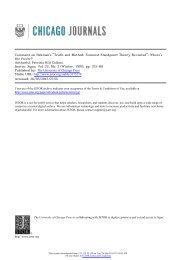

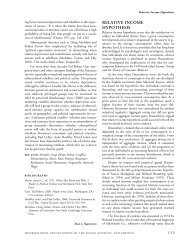
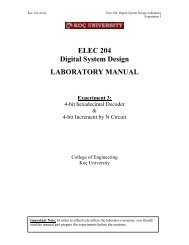
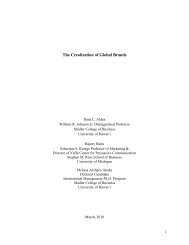

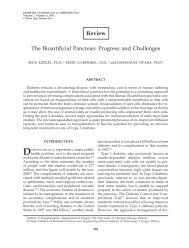
![]_[O](https://img.yumpu.com/10363126/1/190x138/-o.jpg?quality=85)
